#Society
Dirty Da’wah [Part 3] – “The Infuriating” | Manufacturing Muslim Outrage

Published
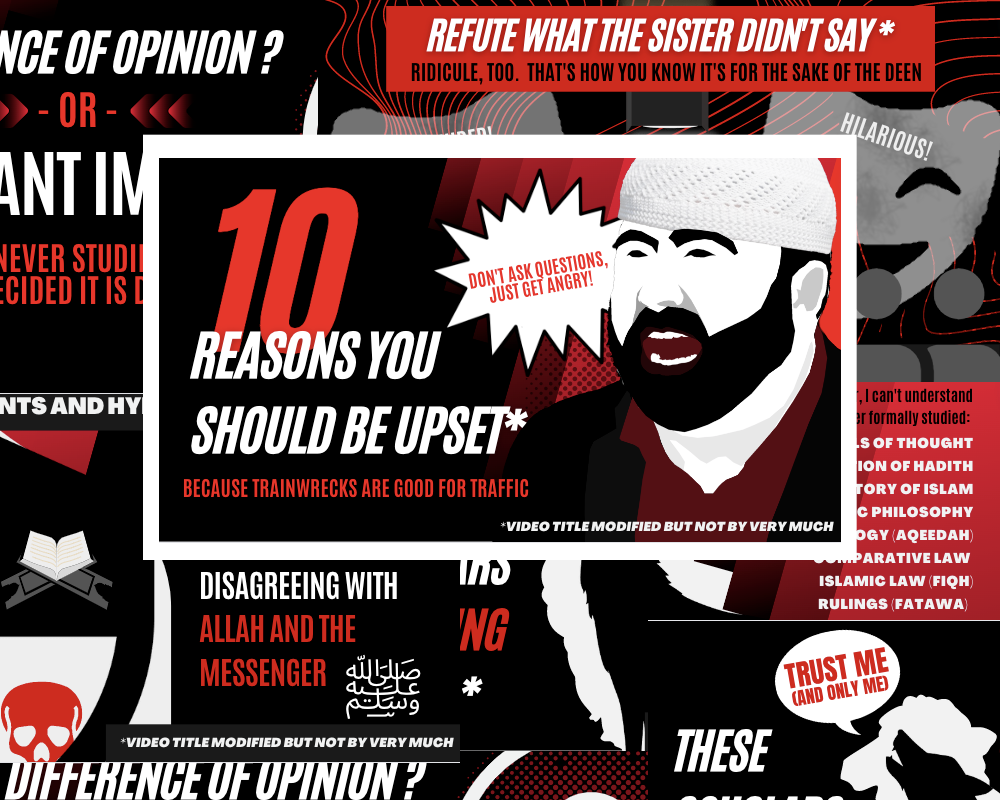
What do Alex Jones and the Muslim community have in common? I’ll tell you, but it’s going to make you mad.
In this third part of the Dirty Da’wah series, I explore problematic trends in our online outreach to Muslims and non-Muslims alike. Click here to read Part 1- Insulting in the name of Islam, or Part 2 – “Satisfying” Revenge In The Name of Islam.
And Now, To Dive In
Alex Jones is a right-wing radio host whose fame has been built on conspiracy theories and outrageous accusations. When the yogurt company Chobani began hiring refugees from Afghanistan and Syria, he accused them of “importing migrant rapists.”
Keep supporting MuslimMatters for the sake of Allah
Alhamdulillah, we're at over 850 supporters. Help us get to 900 supporters this month. All it takes is a small gift from a reader like you to keep us going, for just $2 / month.
The Prophet (SAW) has taught us the best of deeds are those that done consistently, even if they are small. Click here to support MuslimMatters with a monthly donation of $2 per month. Set it and collect blessings from Allah (swt) for the khayr you're supporting without thinking about it.
He accused Hillary Clinton of operating a child sex ring below a pizzeria (PizzaGate) and created mass hysteria by “alerting” the residents of Texas to an imminent invasion by the US military – operation Jade Helm.
“This is sensational news, Texas is listed in red as a hostile sector…I told ya, I’m deep behind enemy lines folks. I mean this—we are listed as a hostile sector, they’re having Delta Force, Navy SEALS, with the Army, train to basically take over. This is over the top.” [source]
The hysteria became so widespread that the Governor of Texas, Greg Abbot, sent the Texas State Guard to monitor the exercises conducted by the US military, as a sort of ‘just in case.’
Alex Jones was most recently in the news for being ordered to pay nearly one billion dollars to the families of those killed in the Sandy Hook Elementary School shooting. He had been alleging that the shooting was another hoax, and that the “victims” and their “families” were actors. Twenty six people were killed, many of whom were elementary school children.
So what does this have to do with the Muslim community? It’s all big business in the industry of Manufactured Outrage.
 On Outrage – Artificial vs. Organic
On Outrage – Artificial vs. Organic
This really is a case where it’s better to go with organic. Good old natural outrage isn’t a problem. A certain amount of anger for the sake of Allah 

“The parable of the believers in their affection, mercy, and compassion for each other is that of a body. When any limb aches, the whole body reacts with sleeplessness and fever.” [Sahih Muslim]
Not only is righteous outrage a natural response to the outrageous, it’s also a force of positive social change.
When 14 year old Emmett Till was brutally murdered, his death “pushed many who had been content to stay on the sidelines directly into the fight” for civil rights. 1https://www.pbs.org/wgbh/americanexperience/features/emmett-impact-emmett-tills-murder/#:~:text=Emmett%20Till’s%20murder%20was%20a,sidelines%20directly%20into%20the%20fight. A photograph of Emmett’s mother standing beside the open casket of her son’s mutilated body was deemed to be one of the”100 most influential images of all time.2Hampton, Henry (1990). Voices of Freedom: An Oral History of the Civil Rights Movement from the 1950s through the 1980s” by Time magazine.
Publications like What Has Happened to Me and Guantanamo Voices tell stories that appeal to the righteous outrage we feel when a grave injustice has occurred. How we respond to this grave injustice -or not- says as much about us as a society as it does individually.
“Of course, there is a good reason we feel an obligation to feel and express outrage: We assume it is a reliable force for social change. The absence of outrage in the face of the outrageous reflects a cowardly quietism, resignation, or apathy.” Professor Richard Thomson Ford. “The Outrage-Industrial Complex” Stanford School of Law
Righteous outrage, the kind that results from true injustice, spurs us to take positive action to rectify a wrong. It is a commendable and universal human response, and that is why manufactured outrage works so hard to impersonate it. Where righteous anger demands a response to factually established wrong, manufactured outrage demands action for a wrong that is established through misinterpretation, misinformation, or misrepresentation.
Also referred to as outrage porn, manufactured outrage refers to any media designed to evoke a strong backlash, particularly for the sake of getting online traffic. Politicians use the anger they incite to rile up supporters, or claim the moral high ground in order to tar their opponents. On slow news days, media outlets use it to inflate minor occurrences into major stories.
“The ubiquitous outrage of today is a perversion of this American custom of politics-as-entertainment: Now, instead of reflecting sincere and mature political engagement, conspicuous outrage takes the place of it.” Professor Richard Thomson Ford. “The Outrage-Industrial Complex” Stanford School of Law
Conflation And Conflict
Compared to plain old lying, outrage media is harder to dispute because it is built on a grain of truth that is then deliberately misinterpreted. That is why its purveyors are able to present the “evidence” that lends legitimacy to their claims. It’s like a wolf wearing what was part of a sheep, but no longer qualifies as one.
It makes things even harder when the wolf in sheep’s skin grows a beard, wears a kufi, and uses the defense of Islam to deter disagreement. It’s a bit of a hostage situation, where people are discouraged from disagreement for fear of attacking Islam.
Conflating the sanctity of their opinion with the sanctity of Islam itself, videos like these can be hard to disprove without a depth of Islamic study not available to your standard Muslim viewer. Or, without taking a deep-dive into some of the nuanced topics so often misrepresented in over-simplified ways, and who has time for that?
There are many, many ways that this distortion is happening in the Muslim media, and in the next few installments of this series of Dirty Da’wah, I’ll be sharing a few specific examples. I will not be sharing the channel names or identifying information about the Muslim da’ees who are making the errors I discuss. For a full explanation of why, please see the disclaimer in Dirty Dawah [Part 1] Insult in the Name of Islam.
Misrepresentation: Sisters On The Verge Of Kufr?
There are a number of videos in which Muslim influencers dishonestly rebuke other Muslims for things taken out of context, either through cherry picking, creative editing, or some other form of misrepresentation.
For this section, I will be discussing an actual case of misrepresentation where a number of videos have been made ridiculing and criticizing the content of another da’wah channel.
This begins with two da’ees reacting to a video in which a group of Muslim women discuss the abuses that happen when polygamy is practiced improperly. The influencers begin their reaction three minutes after the source video begins, while one of the female hosts is in mid-sentence. She is heard to say,
Sister 2: “- the environment around polygamy and what happens in the aftermath of it is really toxic and judgey and negative. There’s a lot of pressure to react in a certain way, there’s a lot of pressure to uh, accept that being like the automatic position. Like if you’re a Muslim you accept what God allows, so why are you struggling? Like what’s wrong with you? It’s bringing your faith into question and you’re – I hear it over and over, I want- I love Allah, I love this faith, this is something that Allah subhanallah wa ta’ala allowed, why is it breaking me? And I think that that’s what I want to talk about today.”
Sister 3: “So women are questioning themselves? Questioning their level of faith because it is something breaking them? Is that being the experience that you’ve had with people that you’ve spoken to and worked with?”
Sister 2: “I think that it’s an opportunity to put a wedge between a woman and Allah subhanuhu wa ta’ala if she thinks that it’s being positioned that Allah azzawajal allowed me to do this to you.”
Sister 3: “So it’s like the spiritual abuse, when something’s going on to happen and then I say I have this God card that says I can do it to you, so if you have a problem with it, you have a problem with God.”
The impression that the viewer could take from this clip is that the women are discussing polygamy without any further context, and thus they are suggesting that polygamy itself is a form of spiritual abuse. Here the clip of the sisters is cut, and one of the da’ees in the video provides a disclaimer:
Da’ee 1: “Just to be just yeah, before the video starts – because we don’t want the sisters to be like you didn’t put the beginning bit. In the beginning bit they make it very categorically clear that they do not have an issue with polygamy itself. It is from Allah, but when we watch the video, we’ve yet to see – they said they wanted to touch upon the way the polygamy is done the wrong way, so we’re going to see if they even touch up on that. Just to give that disclaimer they said that. Now going straight to this.”
Da’ee 2: “I think what she said is highly problematic, she is not giving an example of where there is a miscarriage of justice from the Islamic paradigm. She’s just talking plainly about polygamy as an institution or as a form of marriage that Islam allows.”
Da’ee 1: “It’s clearly in the pretext, not even in the subtext of what these women are saying that just basically engaging in this act itself [polygamy] is a kind of spiritual abuse.”
Da’ee 2: “Exactly. This is verging on kufr.”
The two da’ees are correct in that if the sisters in the video actually been declaring a halal thing to be haram, they would have been committing a major sin.
“Do not falsely declare with your tongues, ‘This is lawful, and that is unlawful,’ ˹only˺ fabricating lies against Allah. Indeed, those who fabricate lies against Allah will never succeed.” [Surah An-Nahl: 16;116]
Muslim scholars agree unanimously that only Allah 

“Nobody is allowed to forbid something that Allah has permitted. If he did so he would be exceeding the limits set by Allah and claiming to himself what is a divine attribute of Allah. Moreover, those who accept and follow this man-made legislation will also be held responsible.”
That is why, had the sisters in this video been declaring polygamy to be haram, a correction would absolutely be in order. In spite of how this refutation is positioned, that isn’t actually the case.
The two da’ees in the refutation video began their critique by skipping the context that clearly explained the topic of the video, and thus contradicted the basis for their reaction in the first place. Here is what the sisters were actually saying, from the beginning of the original video, without any omissions.
Sister Da’ee 1: “First of all, it’s really important for me to say Allah ‘azzawajal has spoken on this and we are not here to discuss whether this is good, bad – Allah has spoken. Polygamy is permissible just as monogamy is permissible. Allah has made it halal and that is not what we’re bringing to the table. What we are bringing to the table when we discuss polygamy is how it is done, the effect that it has on individuals as a result of how it is executed and yeah- that’s what we’re going to bring to the table, Bismillah.
Sister Da’ee 2: “So you started, we’re talking about execution and how it’s being done, not the principle in our faith. Um, because that’s to avoid all of this “it’s allowed, it’s not-“ we’re not talking about that. Um, so execution – how is this being done? What are the effects it has? It’s not being done right. It’s a big issue. By the vast majority it’s a big issue, because there are cases where it works, there are cases where people choose this, there are cases where all of the positives are there, but that’s not what we’re discussing. We’re discussing where it’s an issue, where it’s to where it’s detrimental.
“Um, and obviously we’re talking about the position. I think you can’t escape a related kind of issue, which is the issue of secret marriages, they’re kind of hand in hand in the way it’s being done. So you have the case of a woman who has been married for x number of years, has children or doesn’t, and for whatever reason her husband has remarried in some cases they know, and in some cases he tells her this is what I’m going to do, and in other cases it’s done in secret where she will find out after the fact in short period of time, or well after the fact. And what this does to her, I think in the cases that I’ve seen and worked with in my own life experience, the environment around polygamy and what happens in the aftermath of it is really toxic.”
And here, in the final half the last sentence is where the critique begins, deprived of context and the emphatic confirmation that polygamy is halal and that its permissibility was not up for discussion.
“When a person calls his brother (in Islam) a disbeliever (kafir), one of them will certainly deserve the title. If the addressee is so as he has asserted, the disbelief of the man is confirmed, but if it is untrue, then it will revert to him.” [Al-Bukhari and Muslim]
In the spirit of husne-zhann, in which we give others the benefit of the doubt, we can try to suggest that the two brothers somehow missed the entire point of what the sisters in the video were saying, and that their entire critique was a misunderstanding.
If that were the case, could the brothers not have communicated with the sisters directly and respectfully through any of their da’wah channel’s many social media accounts? (Facebook? Twitter? Instagram? YouTube?)
And if we assume the brothers to be making a genuine mistake, how do we explain why they did not take the video down when Muslim viewers pointed the discrepancy out in the comments?
When a Muslim makes a mistake, it is their job to repent, and if their mistake involves another person or party, it’s their job to apologize directly to them and make amends.
If we are to assume an honest mistake, then we can look forward to the video being removed, and the two influencers replacing it with an apology and an explanation of what went wrong as soon as they found out. Over three months and 200k views later, we have yet to see one.
Rather than an honest representation, a private conversation, admission of error, or public retraction, in Dirty Da’wah like this is a pattern of criticism, refutation, and a toxic culture of reaction videos, as well as the subsequent reactions, reactions to the reactions, and the rebuttals to the reactions that have been reacted to. And a special mention must be made here, where that pattern is directed against Muslim women.
Competing In The Sport Of Public Spectacle
When da’wah channels intentionally misrepresent information in order to refute, it’s hard to see the effort as sincere. It’s even harder when they double down on the misrepresentation and fail to correct it or apologize for it.
When videos like these stay online, we have to wonder who they are meant to benefit. With other da’ees being insulted, and Muslim viewers being misled, what exactly does content like this improve?
The bottom line.
“According to a variety of sources, YouTubers can make anywhere between $0.01 to $0.03 per view with AdSense, with an average of $0.18 per view.” [Source]
Without paid sponsors or promotions, YouYubers make between 3$ to 5$ per 1000 views. When they allow Adsense to run on their videos, they can make $18 dollars per thousand views. Further revenue can also be generated through paid video sponsors, endorsements, and those prices depend on the amount of clout these platforms bring to the negotiating table.
Because platforms like YouTube incentive popularity (not accuracy), our religious outreach has fallen into the same popularity contest that news media has. In order to successfully compete for our attention – and thus, ad revenue – da’ees one-up each other in the quest for the most shocking, most infuriating, and most outrageous videos possible.
“News and media outlets know that headlines attract readers, so they use this to their advantage. Often times headlines feature an over-exaggerated display of events. With the right wording, the most mundane thing can be blown out of proportion.” – Rylan Vanacore, RIT Reporter
“Ideally we should be fulfilling the expectations we have of da’wah to begin with – good akhlaaq, and respect for one another,” says writer and activist Zainab Bint Younus, who has been involved in online da’wah for the past 16 years. “Instead, we get swearing, threats, and personal attacks.”
“Public trolling is a threat used against Muslim women. I know plenty of Muslim women – Shaykhas and activists, who have had to retreat from the internet and public life or avoid talking about certain things because they know they will be harassed and attacked. They have people threatening their homes and families. This effectively pushes aside female da’wah/ scholarly participation, which in turn reinforces some of our community’s worst habits and patterns of disrespecting and even harming women.”
The Cost The Muslim Community Pays
The net effect of sensationalized, misrepresented, and artificially inflated “controversies” like these is:
- The creation of conflict between da’ees, influencers, and scholars.
- Infighting between the respective viewers/subscribers at odds with each other.
- The discrediting of Muslim scholarship and institutions.
- The tainting of truth with the lies of intellectual dishonesty and sensationalism.
The Prophet 
It’s hard to see this as good for the community, and harder to see “da’wah” like this as a good deed. Ibn Taymiyyah wrote in Minhaj as-Sunnah an-Nabawiyyah, that:
“Likewise in responding to the people of innovation among rejectors and others, if its intention is not to clarify the truth, guide the creation, and offer them mercy and goodness, then it is not a righteous deed.
If he is harsh in condemning innovation and disobedience, his intention should be to clarify what is in them of corruption and to warn the servants of Allah, as in the texts (verses) of warning and others. A man may be boycotted as a discretionary punishment, and the objective of that is to deter him and those like him as an act of mercy and goodness, not as revenge and vengeance.”
While defending Islam is the responsibility of every Muslim, it cannot be separated from how Islam instructs us to do so: with sincerity, good manners, and the well-being of the other person in mind. Content that creates controversy to direct traffic through public anger isn’t actual refutation. It’s a lie, and what some da’ees gain from manufactured outrage, the Muslim community loses.
Part 4 of this Dirty Da’wah series is coming soon to a MuslimMatters near you.
Keep supporting MuslimMatters for the sake of Allah
Alhamdulillah, we're at over 850 supporters. Help us get to 900 supporters this month. All it takes is a small gift from a reader like you to keep us going, for just $2 / month.
The Prophet (SAW) has taught us the best of deeds are those that done consistently, even if they are small. Click here to support MuslimMatters with a monthly donation of $2 per month. Set it and collect blessings from Allah (swt) for the khayr you're supporting without thinking about it.
Zeba Khan is the Editor at Large - Special Needs for MuslimMatters.org, as well as a writer, speaker, and advocate for social justice. In addition to having a child with autism, she herself lives with Ehlers-Danlos Sydrome, Dysautonomia, Mast-Cell Activation Disorder, and a random assortment of acronyms that collectively translate to chronic illness and progressive disability. She is also an enthusiastic student of martial arts.


I’m So Lonely! The Crisis Muslim Parents Are Missing | Night 12 with the Qur’an

When Love Hurts: What You Need to Know About Toxic Relationships | Night 11 with the Qur’an

I Can’t Stop Thinking About Someone | Night 10 with the Qur’an

Fifteen Years in the Shadows: The Strategic Brilliance of the Hijrah to Abyssinia

Ramadan As A Sanctuary For The Lonely Heart

30 Nights with the Qur’an: A Ramadan Series for Muslim Teens

[Podcast] Guardians of the Tradition: Muslim Women & Islamic Education | Anse Tamara Gray

Who Am I Really? What Surat Al-‘Asr Teaches Muslim Teens About Identity | Night 1 with the Qur’an

Where Does Your Dollar Go? – How We Can Avoid Another Beydoun Controversy

An Unending Grief: Uyghurs And Ramadan Under Chinese Occupation

I Can’t Stop Thinking About Someone | Night 10 with the Qur’an

When to Walk Away from Toxic Friends | Night 9 with the Qur’an

What Islam Actually Says About NonMuslim Friends | Night 8 with the Qur’an

Week 1 in Review: Is Your Teen Actually Changing? | Night 7 with the Qur’an

Why Your Teen Wants to Change Their Muslim Name | Night 6 with the Qur’an
MuslimMatters NewsLetter in Your Inbox
Sign up below to get started
Trending
-
#Islam2 weeks ago
30 Nights with the Qur’an: A Ramadan Series for Muslim Teens
-
#Life1 month ago
[Podcast] The Parts of Being an Imam They Don’t Warn You About | Sh Mohammad Elshinawy
-
#Islam1 month ago
How to Make this Ramadan Epic | Shaykh Muhammad Alshareef
-
#Islam4 weeks ago
[Podcast] Guardians of the Tradition: Muslim Women & Islamic Education | Anse Tamara Gray
 On Outrage – Artificial vs. Organic
On Outrage – Artificial vs. Organic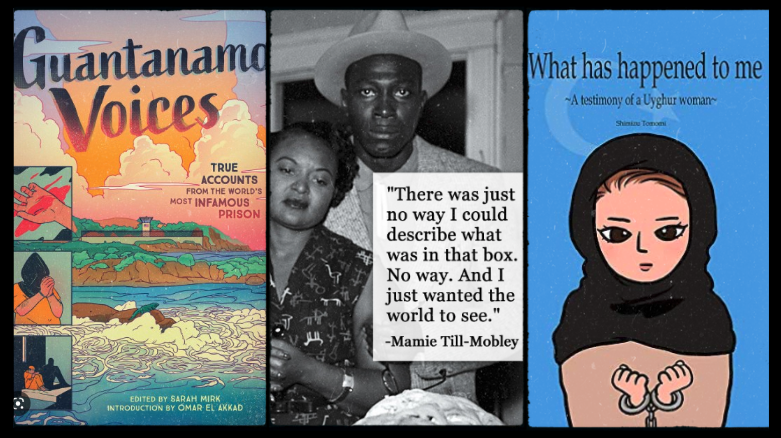
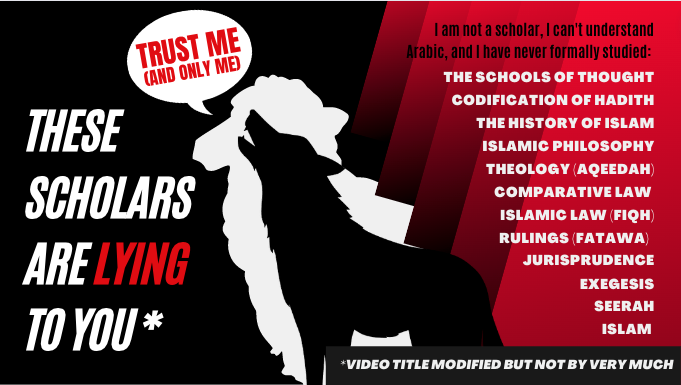
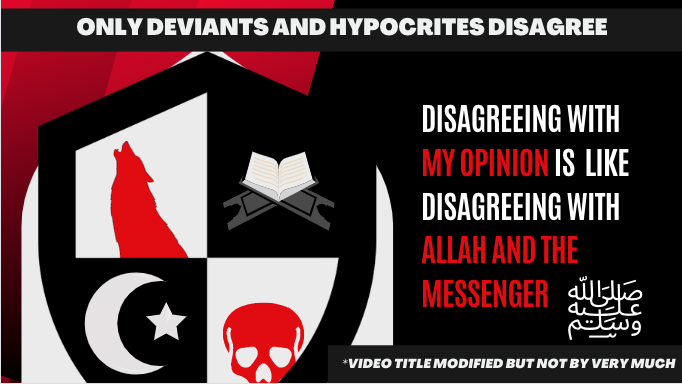
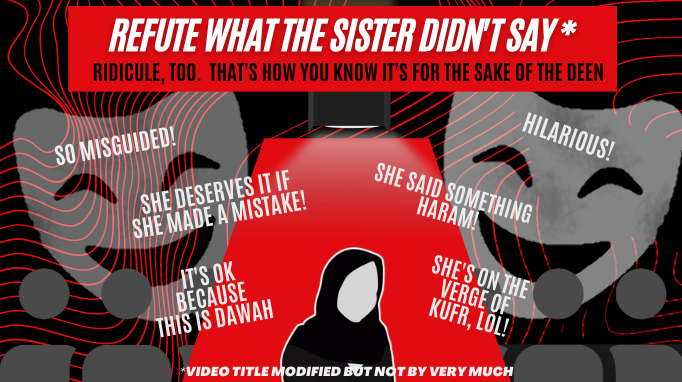












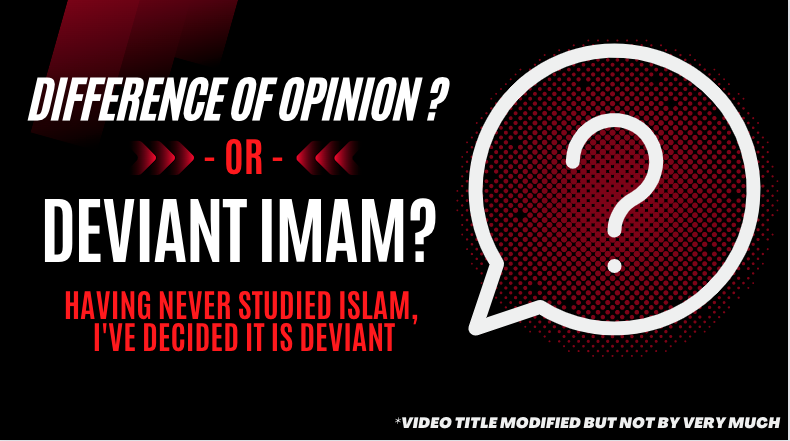











MA
November 26, 2022 at 11:20 AM
Every Muslim community I’ve seen (from my limited knowledge) that hasn’t given the highest emphasis to scholarship, seeking knowledge, and that whole process of tarbiyah and tazkiyah that comes with it, has always waned and fizzled out over the generations, and made significant, painful mistakes along the way. If you think you get to speak about Islam 24/7 but you’ve hardly implemented the Quran in your own life (which would be easily known by your beautiful character), then it is foolish for you to assume your first responsibility is to be preaching. Our first responsibility is to save ourselves and then our families (Quran – 6:66). Let’s fix/save ourselves first, and give the inheritors of the Prophets the respect and studentship they deserve.